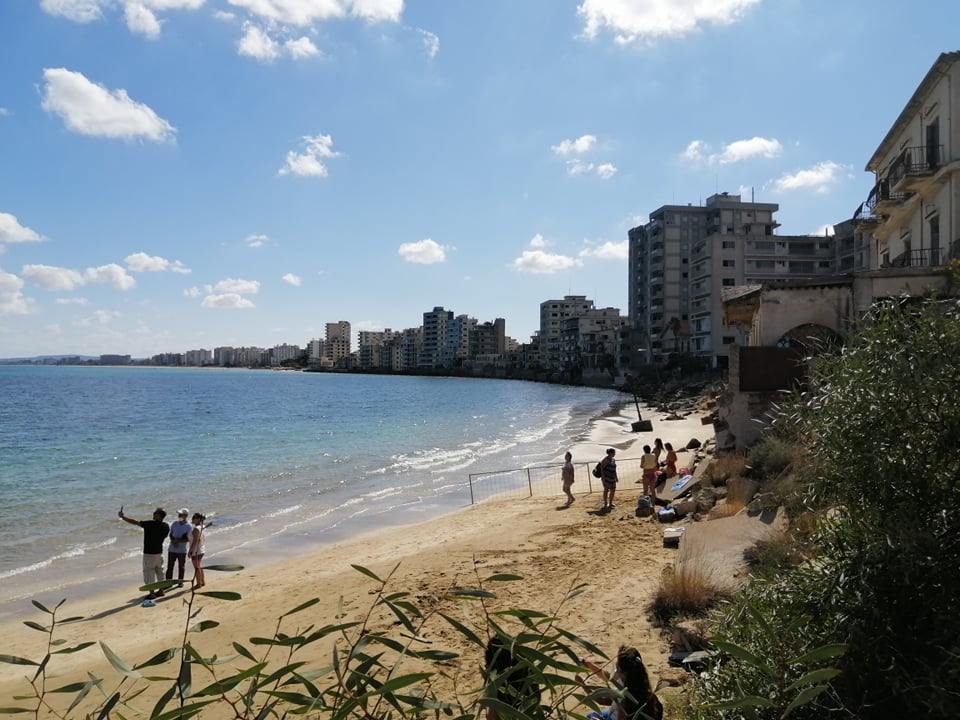Both Turkish Cypriot leader Ersin Tatar and the north’s ‘foreign ministry’ on Tuesday night expressed broad satisfaction with a European Court of Human Rights (ECtHR) ruling regarding Greek Cypriot-owned land in Varosha.
The court had earlier in the day ruled in the case of “KV Mediterranean Tours Limited v Turkiye” that Turkey’s government must pay a total of €18,000 in “non-pecuniary damage” – the name given to compensation for losses which are not easily quantifiable – and costs and expenses.
This was after the property’s owner had originally filed a claim at the ECtHR in 2005, but then was sent to the Immovable Property Commission (IPC) after the ECtHR had ruled that the IPC constituted an effective domestic remedy.
The company had then returned to the ECtHR in 2017, arguing that proceedings at the IPC were being unduly delayed.
In addition to the financial awards, the court found that the claimant’s position that it was “impossible” to achieve a domestic solution given the north’s foundations administration (Evkaf)’s interest and claims in Varosha.
On this matter, the court said that “it seems that no concrete decision regarding title to the property in question has yet been adopted by the IPC”, and that as such, the court “cannot at this stage of proceedings before the IPC speculate on their possible outcome”,
“The IPC did not automatically decide to grant ownership rights to [Evkaf], but merely invited [them] to participate in the proceedings in order to be able to take account of all available information about the property in question,” it said.
It added that “the applicant company failed to convincingly demonstrate how the Evkaf’s involvement had rendered the proceedings unfair”, and that “the IPC retained authority to examine property claims and did not automatically assign ownership” to Evkaf.
In addition, it said, “the participation of Evkaf in the IPC proceedings as an interested party was necessary to comply with the principle of a fair trial”.
“The issue of the third-party intervention was also examined in depth not only by the IPC but also by the courts. Accordingly, the Court does not see any indication of arbitrariness in the present case. There is no evidence that such involvement led to the unfairness in the proceedings as a whole,” it said.
In response to the ruling, Tatar said the ECtHR had “once again confirmed … that the IPC is an effective domestic legal remedy which must be exhausted in relation to the claims of Greek Cypriots regarding the immovable properties they have abandoned in the TRNC”.
He added that “the ECtHR has underlined that the immovable properties abandoned by the Greek Cypriots in the TRNC is not the only solution, and that the compensation or exchange decisions that the IPC may give are valid as a method of compensation”.
“This ECtHR decision is a response to the Greek Cypriot side, which disregards our property regime and the IPC … and pursues aggressive policies against our people. The IPC exists and continues to be steadily effective,” he said.
He then made reference to the recent arrests made by the Republic of Cyprus of people accused of selling Greek Cypriot-owned property in the north.
“We remind the Greek Cypriot side once again of its obligation to comply with the ECtHR decisions. We demand an immediate end to the oppressive and hostile attitude which targets people who act within the framework of our property regime … which aims to punish them individually, and which clearly violates their human rights,” he said.
Meanwhile, the north’s ‘foreign ministry’ said the ruling had “confirmed that the IPC is an effective domestic legal remedy”.
“At this stage, we would like to reiterate our determination to do what is necessary to ensure that the IPC, which we see as the guarantee of the property regime in our country, continues its work effectively,” it said.






Click here to change your cookie preferences